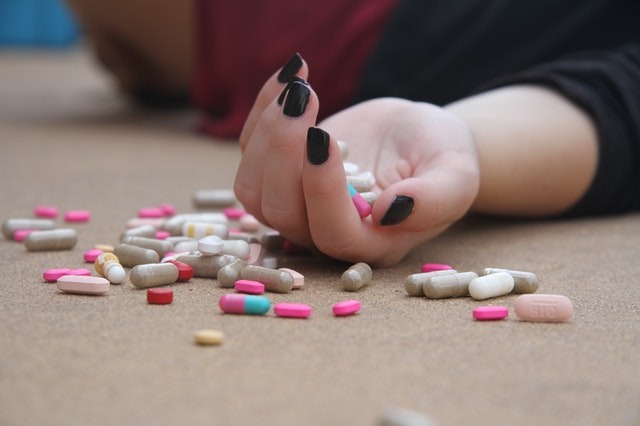Motherhood is difficult in the best of circumstances. The transition from a single person or married couple to a parent is one fraught with anxiety and guilt as you are faced with caring for a tiny human being and raising them into a happy, productive adult. For mothers facing parenthood and drug addiction simultaneously, the odds of successfully making the transition to parenthood are slim. Here is what you need to know.
- The number of babies born to mothers with addiction is on the rise.
According to the National Institute on Drug Abuse, there has been a five-fold increase in the number of babies born addicted to opioid medications since the year 2000. On average, one baby is born every 25 minutes that will suffer from withdrawal symptoms. These babies are likely to suffer from low birth weight and respiratory problems and are more likely to have extended hospital stays. The study also revealed that 81 percent of infants born with withdrawal symptoms have mothers who are on Medicaid. While opiate abuse is not exclusive to lower-income households, this reflects the tendency of mothers with addiction to be from lower-income communities.
- Addiction isn’t just about illegal drugs.
The most commonly used drug during pregnancy is tobacco, followed by alcohol, marijuana, opioids (including prescription painkillers) and illegal substances like cocaine, heroin, and other illegal drugs. According to a national survey of pregnant women in the US, nearly 16 percent of pregnant women smoked cigarettes, 8.5 percent drank alcohol and almost 6 percent used illicit drugs. In 2012 alone, this resulted in 380,000 babies exposed to drugs and over 550,000 exposed to alcohol and more than a million babies exposed to tobacco while they were in utero. Unfortunately, it is common for these addictive materials to be used together, compounding their effects on your baby’s development. Add limited or disrupted prenatal care and environmental stressors like second-hand exposure to drugs, a lack of food and inadequate housing, and addiction has a profound effect on pregnancy.
- Addiction affects your baby’s development.
Using any addictive substances during your pregnancy affects not only you but your baby as well.
- Alcohol use during pregnancy has been associated with miscarriage, stillbirth, infant death, low birth weight, premature birth, and neurological problems as the child grows up. Children born to mothers with alcohol addictions also have problems with attention, language, speech, and behavior as they grow.
- Smoking cigarettes can cause miscarriage, low birth weight, preterm labor, and infant death. Babies born after being exposed to tobacco in the womb also have a higher risk of respiratory problems, ear infections, behavioral problems, and learning difficulties.
- Marijuana can also affect birth weight, cause premature birth, and result in admission to the neonatal intensive care unit. It can also affect the way your baby’s brain develops, causing attention and learning problems. Marijuana use is also most likely to be seen in conjunction with other substances like alcohol and illicit drugs.
- Cocaine and methamphetamine use have been shown to cause premature birth and pregnancy complications like preeclampsia, high blood pressure, and fetal death. Babies born with exposure to these drugs are more likely to have a low birth weight and extended stays in the neonatal intensive care unit. Some of the long-term effects of cocaine and meth use during pregnancy include language issues and motor and learning problems in the child as they grow.
- Opioid use has been linked to low birth weight and breathing problems in babies, but it has also been correlated with third trimester bleeding and death in both mother and baby. Opioids are most strongly linked to a condition called neonatal abstinence syndrome (NAS) where the baby experiences withdrawal once they are born. Common symptoms of NAS include irritability, problems feeding, vomiting, diarrhea, seizures, and breathing problems. Opioid use during pregnancy has also been linked to neurological and behavioral problems in babies as they grow.
- Addiction affects your ability to cope with motherhood.
Of course, addiction is not only a physical condition, it is a psychological one as well. A study published in the Journal of Health Psychology found that parents with addiction spend less time with their children, increasing the risk of neglect and abuse. Women who were smokers before they became pregnant were more likely to stop breastfeeding early so they could start smoking again. Mothers who use heroin are more likely to have feelings of inadequacy and use negative discipline like hitting or yelling at the child or withdrawing their physical and emotional contact. But perhaps the most destructive aspect of motherhood and addiction is guilt. When symptoms of addiction and resulting problems do arise in their pregnancies or children, many women experiencing addiction tend to minimize them as much as possible because of the guilt they feel. Rather than seeking the help they and their child need, they compare their experience and their children to others they know in an effort to normalize them.
- Addiction recovery can begin during your pregnancy.
Even if you used alcohol, tobacco or other drugs this far into your pregnancy, addiction recovery can begin now. Reducing how often your baby is exposed to tobacco, alcohol and other harmful drugs can minimize their impact. Addressing addiction now can also give you a head start on your recovery after your baby is born, when the challenges of parenthood begin to emerge. For more information on drug or alcohol addiction or finding an addiction treatment facility visit www.RecommendedRehabs.com.
I’m a 20-something stay-at-home mother and wife. I have an amazing husband, a beautiful daughter, two loving dogs, and a lazy cat. I wouldn’t change my life for anything! I love to read, listen to music, cook and blog!

Speak Your Mind